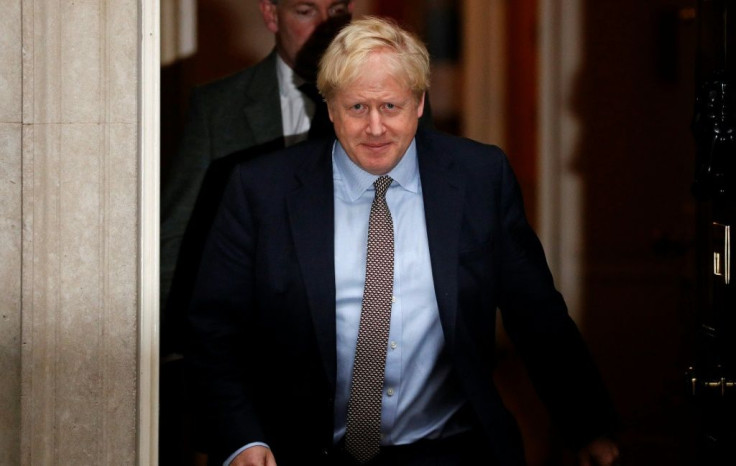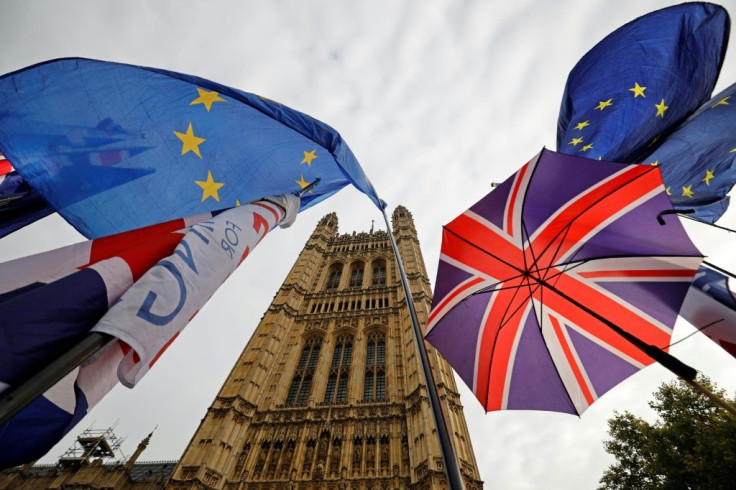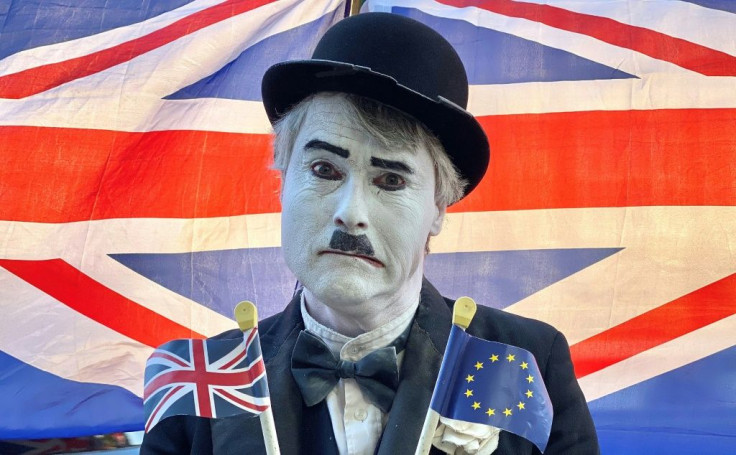Britain's Johnson Offers Dec 12 Poll To Break Brexit Deadlock

UK Prime Minister Boris Johnson on Thursday proposed settling the Brexit crisis through an early election on December 12 that could help Britain finally find a way out of the European Union.
The Conservative leaders' offer comes with his party leading opinion surveys and the opposition split over whether to back a snap poll or to seek a new EU membership referendum that could undo the one triggering Brexit in 2016.
It also suggests that Johnson has all but given up on his repeated pledge to take Britain out of the EU after nearly 50 years by the twice-delayed October 31 deadline.
The government said parliament would have "an opportunity to debate and approve" the election proposal on Monday -- just after Brussels is expected to announce the length of a new delay.
But opposition lawmakers have rejected two past early election offers from Johnson and have shown no clear indication of being willing to back one now.
Johnson told his political rivals Thursday that he was ready to resume debates on his tough EU divorce terms should parliament take up his offer.
He effectively pulled the plan after lawmakers refused Tuesday to rush it through in time for him to meet his "do-or-die" pledge to deliver Brexit on time.
Johnson said Thursday that it was now "our duty to end this nightmare and provide the country with a solution.
"We cannot risk wasting the next three months then this farce being replayed with yet another delay in January 2020," he wrote in a letter to opposition Labour Party leader Jeremy Corbyn.
"Parliament cannot continue to hold the country hostage."

Labour doubts
Labour has previously refused to back a snap election until the possibility of a chaotic "no-deal" divorce has been firmly ruled out.
The party's parliamentary business spokeswoman Valerie Vaz reaffirmed that position in parliament Thursday -- to jeers from Conservative MPs.
"The Labour Party will back an election once no deal is ruled out and if the extension allows," Vaz said.
A European diplomat said the bloc's leaders would take the weekend to consider the new extension's terms.
"The answer could arrive on Monday," the source said in Brussels.

But Labour leader Corbyn later appeared to suggest that he would not be satisfied until Johnson's entire withdrawal agreement is revised.
"No deal is a threat that Boris Johnson has been using all along, and indeed it's included in the legislation that's before parliament at the moment," Corbyn told the BBC.
"I want us not to crash out of the EU."
Labour MP Stella Creasy also told the BBC she "can't see why we'd support (an election) because it doesn't take no-deal off the table".
Under current legislation, two-thirds of lawmakers must vote in favour of an early poll and Johnson is currently running a minority government.
Passing his Brexit legislation would rely on the shaky support of ousted Conservatives and Labour rebels from Brexit-supporting constituencies.
Narrow margins
Top Labour Party members also fear early polls because of Johnson's relatively high public approval ratings.
Several senior members of Corbyn's shadow government want to hold a second Brexit referendum instead.
Some members of Johnson's cabinet and advisers have also reportedly expressed reservations about an election held soon after another Brexit delay.
The problem for Britain is that a new election is by no means certain to come up with a clear solution for the crisis.
The Britain Elects poll aggregator puts Johnson's Conservatives currently on 35 percent.
But it would be defeated if Labour -- now on 25 percent -- joined forces with the pro-European Liberal Democrats and formed a coalition government.
The Liberal Democrats came in third in May's European parliament elections and currently enjoy 18-percent support in the aggregate poll.
The Conservatives would regain the majority if they formed a post-election alliance with the Brexit Party -- now on 11 percent -- of populist eurosceptic Nigel Farage.
The row over Brexit overshadowed a symbolic win for Johnson on Thursday that saw parliament narrowly approve his government's annual legislative programme.
The 310-294 vote saved Johnson from overseeing the first government to have its agenda rejected in nearly 100 years.
© Copyright AFP 2024. All rights reserved.





















